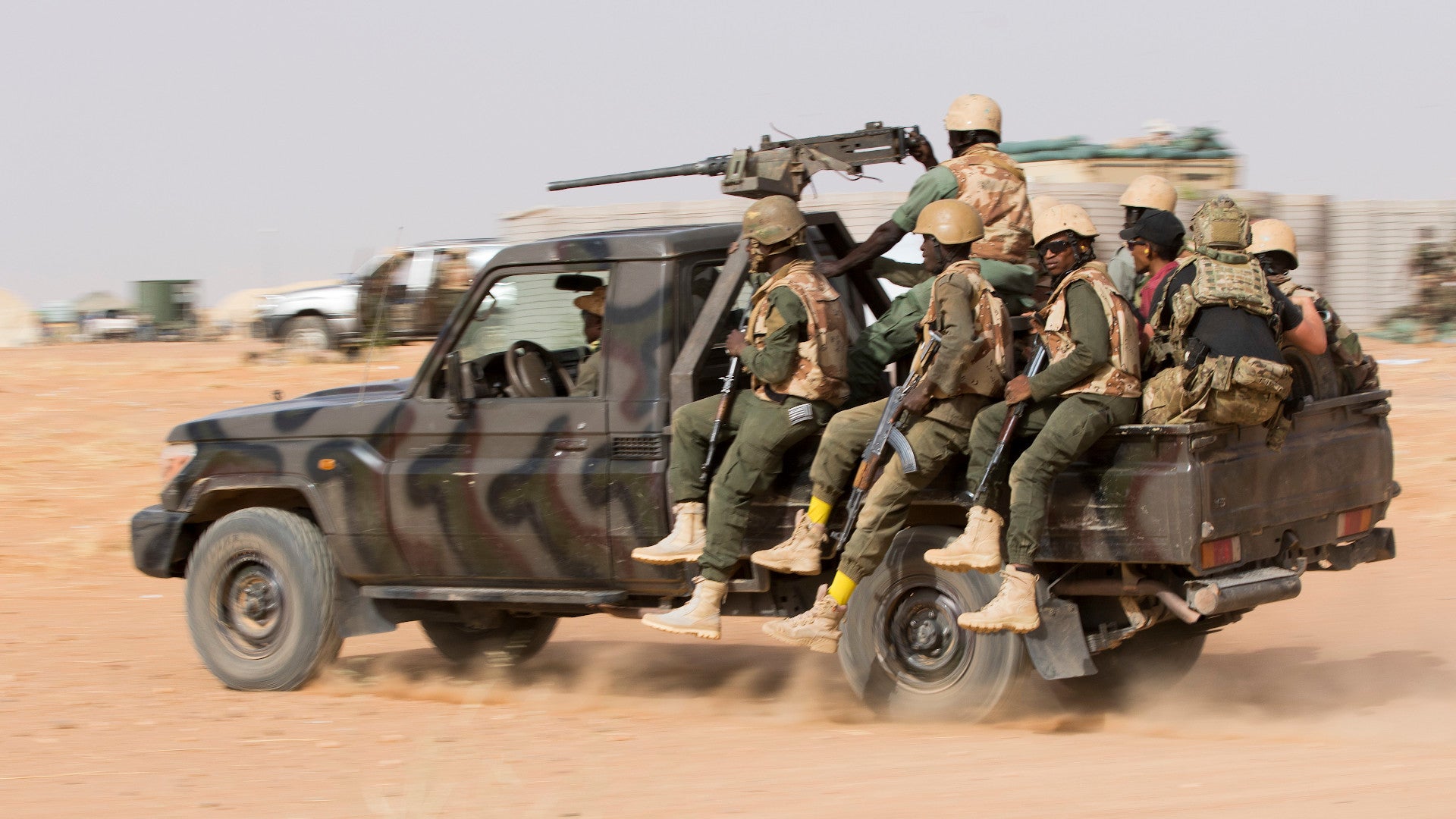An American citizen living in the northwest African country of Niger was kidnapped earlier this week by unknown gunmen and is being held for ransom. Though 27-year-old Philip Walton is said not to be an employee of the U.S. government or any other organization with ties to the United States, Niger is a major hub for U.S. military activities in this part of Africa targeting terrorist organizations linked to both ISIS and Al Qaeda. In 2017, militants from the Islamic State in the Greater Sahara infamously killed four U.S. military service members, as well as four Nigerien troops, in an ambush near the southwestern village of Tongo Tongo, where they had stopped after an abortive attempt to kill or capture Doundou Chefou, one of that group’s leaders.
Reuters was first to report Walton’s abduction from his home in the village of Massalata, which is situated less than five miles north of the border with Nigeria and just over 200 miles east of the country’s capital Niamey, on Oct. 26, 2020. Six gunmen armed with AK-47-type assault rifles are said to have demanded money from the American national, who offered an equivalent to between $35 and $40 in Nigerien francs, and then searched his house, before forcing him to go with them at gunpoint. His wife, daughter, and brother were all there at the time, but were left unharmed. There are conflicting reports about whether the armed men arrived on motorbikes, a common mode of transportation in the region, or on foot.
Walton is reportedly the son of a Christian missionary also living in the country, but it is unclear if he is directly involved in this work. Local authorities said that his father, Bruce Walton, subsequently received a phone call demanding an unknown ransom. The U.S. State Department subsequently confirmed the kidnapping and said “we are providing their family all possible consular assistance” in a statement to various outlets.
Bruce Walton and other local officials say that the gunmen appeared to be members of the Fulani ethnic group, but it’s unclear what that assessment is based on. The Fulani are a traditionally nomadic, pastoral group, with significant populations in at least 17 countries, including Niger, in north and west Africa. There are unconfirmed reports that the men who took the younger Walton may have taken him across the border into Nigeria.
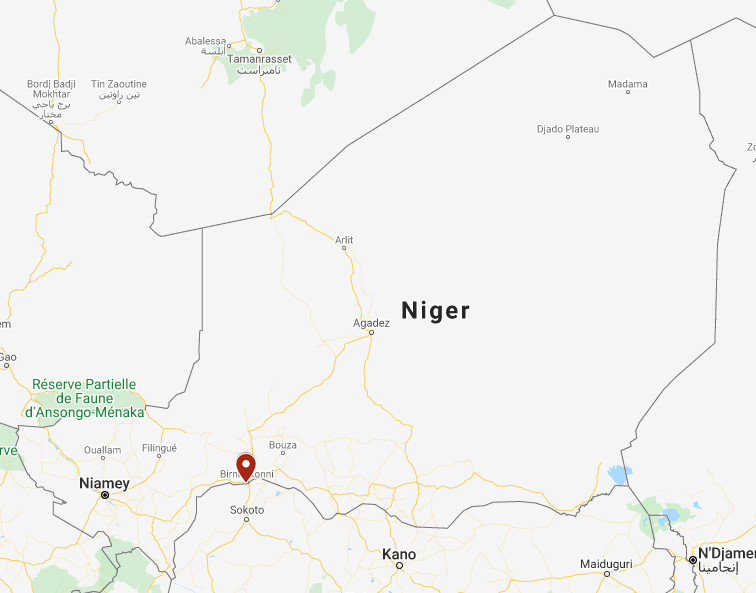
The predominantly Muslim Fulani are not broadly associated with any specific regional terrorist group, but they have often been caught up in the fighting with and between those organizations. ISIS and Al Qaeda-linked terrorists, for instance, have played off existing ethnic tensions between Fulani and other groups in Mali, to the west of Niger, to try to gain sway over certain communities.
Regardless, no group has, so far, claimed responsibility for Walton’s abduction. It is possible that the gunmen were simply criminals looking to profit from the kidnapping.
Reuters did report that at least six foreign hostages, in total, were being held by various Islamist terrorist groups in Niger, as well as Burkina Faso and Mali at the time of Walton’s abduction. Earlier this month Jama’at Nasr al-Islam wal Muslimin, also known by the acronym JNIM, the latest iteration of Al Qaeda’s franchise in Mali, had also notably released three Europeans, including a 75-year-old French aid worker and two Italians, as well as a Malian politician, as part of a controversial swap for 100 terrorist prisoners with the Malian government.
Terrorist groups are also known to simply attack foreigners, as well as government security forces, across the region. In August, ISGS claimed responsibility for an attack in which they killed six French aid workers, as well as the Nigerien driver and guide, in the Koure wildlife reserve, some 40 miles west of Niamey.
No matter what the exact circumstances turn out to be, kidnapping an American in Niger does shine a light on U.S. military operations in the region and this country, specifically. In 2013, then President Barack Obama announced the deployment of U.S. forces to the country to begin flying MQ-9 Reaper drones, on unarmed surveillance missions only, from Diori Hamani International Airport in Niamey.
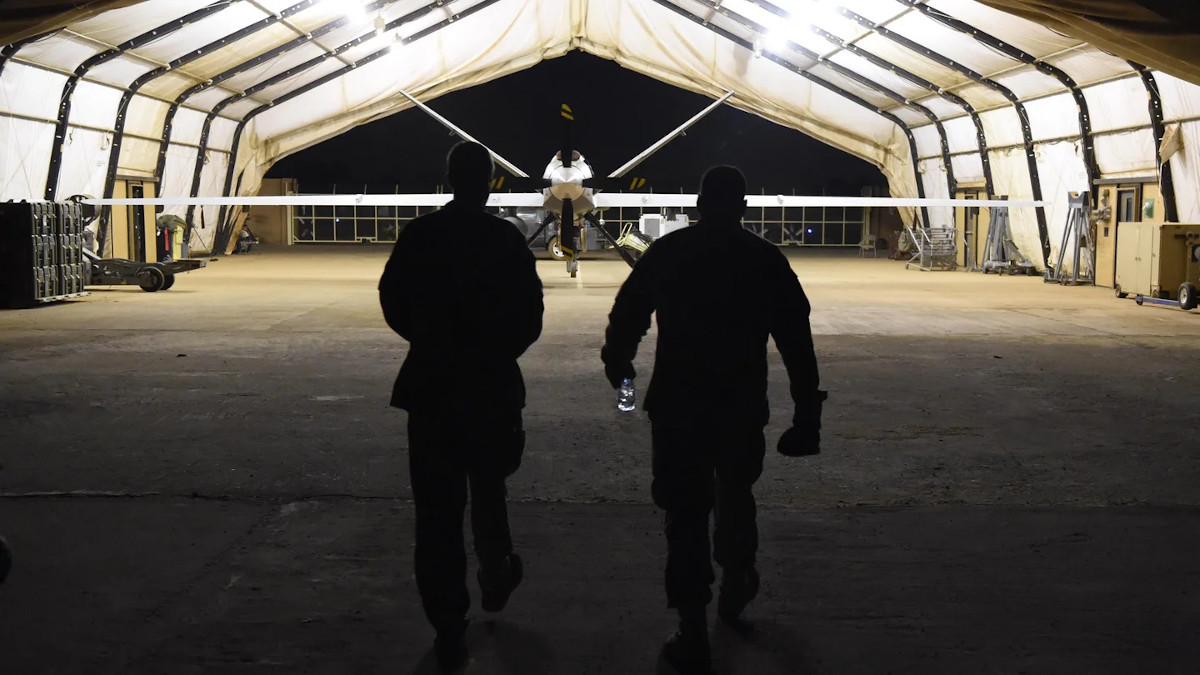
The American military presence in Niger subsequently expanded significantly, with the country now being a major hub for U.S. forces deployed in support of Operation Juniper Shield, the nickname for the overarching U.S. counter-terrorism campaign in north and west Africa, which you can read about in more detail in this past War Zone piece. In October 2019, American forces officially began conducting operations from a new, much larger base near the city of Agadez in the center of the country, which you can read more about in this previous War Zone story. After the Tongo Tongo incident, the U.S. military had also reportedly gained Nigerien government approval to conduct drone strikes from bases in the country.
Beyond unmanned aircraft operations, Agadez can more easily accommodate large U.S. military transport aircraft, such as the C-17A Globemaster III and C-130 Hercules, than often cramped ramps at Diori Hamani International Airport, which also hosts French and German military aircraft and personnel. This, together with its large overall size, which already houses significant facilities beyond the airstrip, makes it a much more versatile facility for supporting a wide array of operational activities.
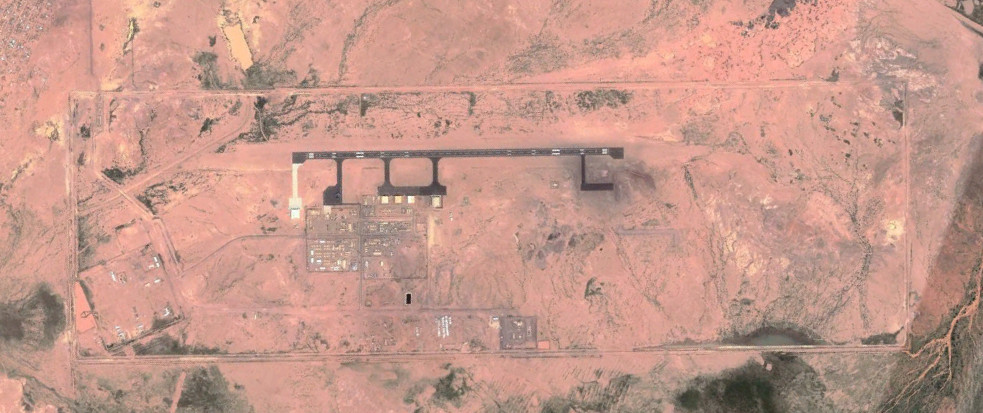
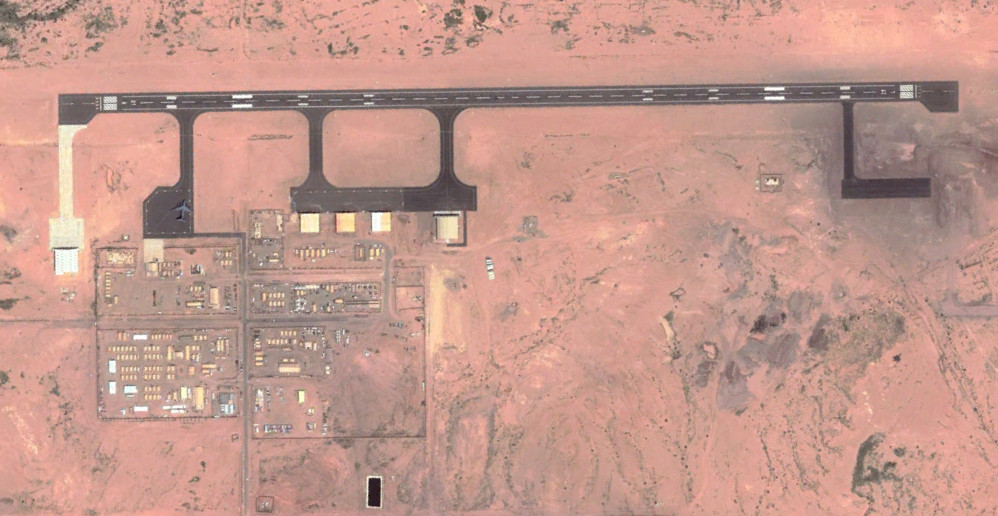
The U.S. military, as well as private military contractors supporting American forces, does still maintain a significant presence at Diori Hamani. American troops, primarily special operations forces, train and otherwise advise Nigerien military units, as well as conduct targeted counter-terrorism operations, such as the failed attempt to kill or capture Doundou Chefou in 2017, from a constellation of smaller sites around the country.
As the American force posture has expanded, the threats from terrorists in the region have also grown. The base in Agadez, in particular, has also drawn criticism from civil society groups inside Niger, especially those that are also critical of the country’s President Mahamadou Issoufou, a long-time opposition figure who first assumed the office in 2011 and who is now accused of becoming increasingly dictatorial himself. The 2011 election was part of a transition back to civil authority after elements of the Nigerien armed forces had ousted Mamadou Tandja, who had been president since 1999, in a coup the previous year.
There have been reports for years now about potential cuts to the U.S. military force posture across Africa, as well, as the Pentagon has sought to refocus itself toward so-called “great power competition” against major adversaries, such as Russia and China. There has even been talk about shutting down the American component of the base at Agadez despite the investment of hundreds of millions of dollars in its construction.
How all of this may or may not impact efforts to secure Philip Walton’s safe release remains to be seen. If a terrorist group turns out to have been involved in his kidnapping, or actionable intelligence exists as to his whereabouts and there is a concern his life may be in jeopardy, the U.S. could potentially launch a military operation to recover him and punish those who snatched him.
Contact the author: joe@thedrive.com
